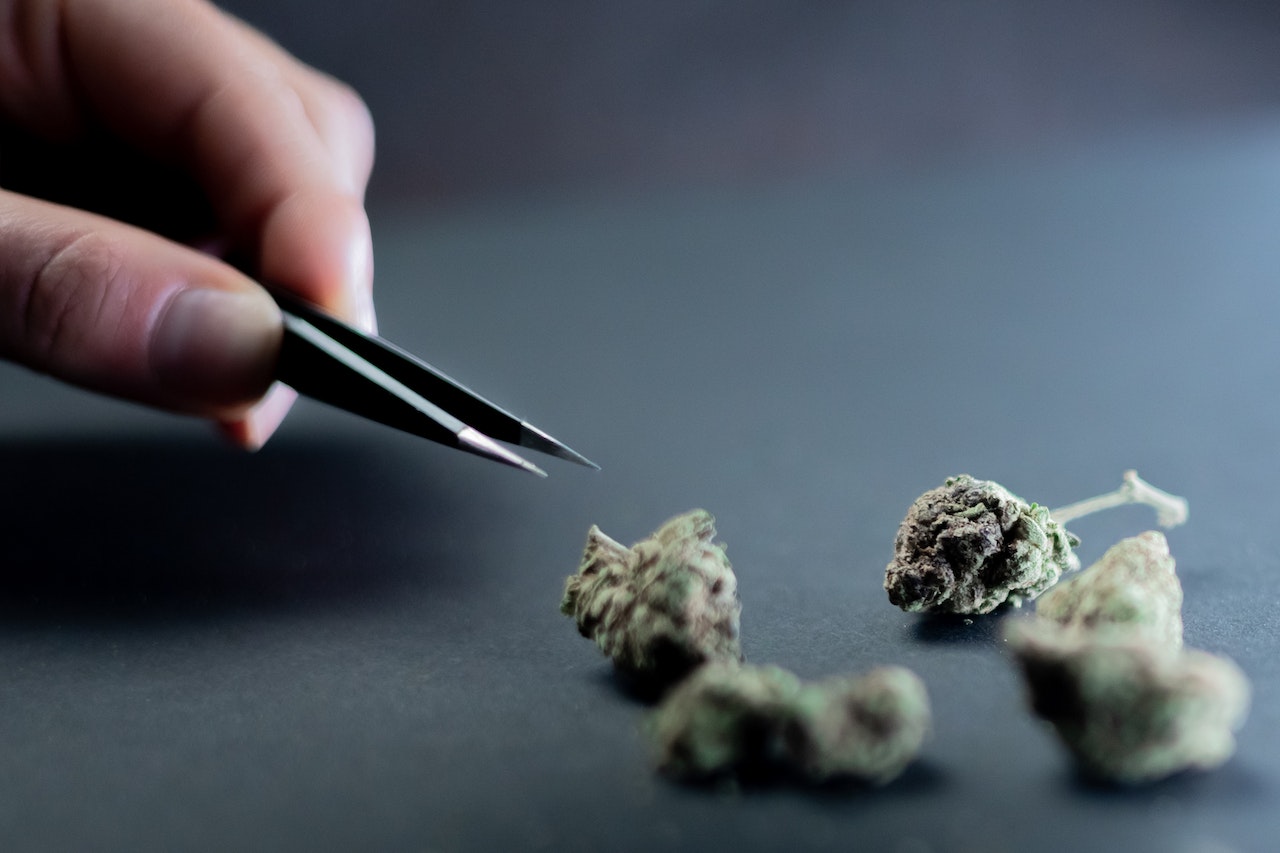Cannabis
World Cannabis Price Survey: Top 10 Most Expensive Cities Revealed
A recent global cannabis price study analyzed prices in 140 cities worldwide and found that Tokyo, Japan, has the most expensive cannabis, costing $33.8 per gram. Meanwhile, Montreal, Canada, has some of the cheapest at $5.9 per gram, where prices have been driven down by oversaturation, showing legalization can lead to lower prices, among other factors that influence global cannabis prices.

In recent years, the cannabis market has seen significant growth both in legal and illegal markets. However, regardless of whether it is legal or not, cannabis prices can vary depending on the location. Researchers from The Center for Advancing Health analyzed cannabis prices in 140 cities worldwide to determine where cannabis is the most expensive and the cheapest.
To stay up to date with all the latest in business and the economy, download our free investing news app.
Cannabis Prive Survey – City Selection
When selecting cities for the study, scientists considered countries with the highest and lowest cannabis consumption rates. They then analyzed countries where cannabis is partially or completely legal and those where it is illegal. The final list of 140 cities aimed to provide the best comparison of global cannabis prices.
Gram prices were determined based on data collected from the PriceOfWeed community and the UNODC World Drug Report from 2022. Cannabis consumption data were collected from the World Health Organization.
Cannabis Price Analysis
The price of a gram of cannabis can vary depending on the location. The most expensive cannabis in the world is found in Tokyo, where a gram costs $33.8. On the other hand, the cheapest can be found in Montreal, where a gram can be purchased for $5.9.
In the United States, the cheapest cannabis can be found in Portland, where a gram costs $7. In contrast, Bangalore in India is the city with the cheapest illegal cannabis, with a gram costing $6.
Out of all the analyzed cities, New York turned out to be the world’s largest consumer of cannabis, with an annual consumption of 62.3 metric tons.
Impact of Legalization on Prices
The analysis shows that cannabis legalization can lead to a decline in prices in the market. On average, prices decreased by 11.13% after legalization. Countries with high cannabis consumption are 30% more likely to lower prices per gram after legalization. It is estimated that by 2030, the price of cannabis per gram in the United States may drop to $5.61.
Most Expensive and Cheapest Cities
Analyzing the global cannabis price index, we can identify the top 10 most expensive and cheapest cities in the world for cannabis.
Top 10 Cities With the Most Expensive Cannabis
| # | CITY | COUNTRY | LEGALITY | PRICE PER GRAM |
|---|---|---|---|---|
| 1 | Tokyo | Japan | Illegal | $33.8 |
| 2 | Dublin | Ireland | Illegal | $22.5 |
| 3 | Tallinn | Estonia | Legal | $22.1 |
| 4 | Rishon Letsiyon | Israel | Legal | $21.0 |
| 5 | Stavanger | Norway | Illegal | $20.8 |
| 6 | Oslo | Norway | Illegal | $20.1 |
| 7 | Moscow | Russia | Illegal | $20.0 |
| 8 | Helsinki | Finland | Illegal | $19.7 |
| 9 | District of Columbia | United States | Legal | $19.1 |
| 10 | Washington | United States | Legal | $18.2 |
Top 10 Cities With the Lowest Cannabis Prices
| # | CITY | COUNTRY | LEGALITY | PRICE PER GRAM |
|---|---|---|---|---|
| 1 | Montreal | Canada | Legal | $5.9 |
| 2 | Bangalore | India | Illegal | $6.0 |
| 3 | Notre Dame | Canada | Legal | $6.2 |
| 4 | Kabul | Afghanistan | Illegal | $6.3 |
| 5 | Vancouver | Canada | Legal | $6.3 |
| 6 | Charlottetown | Canada | Legal | $6.4 |
| 7 | Sao Paulo | Brazil | Illegal | $6.6 |
| 8 | Madrid | Spain | Illegal | $6.8 |
| 9 | Portland | United States | Legal | $7.0 |
| 10 | Annapolis | Canada | Legal | $7.1 |
The analysis shows that cannabis prices vary depending on the country, city, legality, and other factors. These price differences indicate complex relationships between demand and supply, policies, and legal regulations in different countries and cities.
Detailed Cannabis Price Survey – The Most Expensive and Cheapest Cities
Regarding cannabis prices, the most expensive cities in the world are quite diverse in terms of geography and cannabis regulations. For example, in Tokyo, Japan, where cannabis is illegal, a gram costs $33.8. Dublin, Ireland, where cannabis is also illegal, comes second with a price of $22.5 per gram. Interestingly, despite its illegality, prices are quite high, which may be due to the risk associated with the illegal cannabis trade.
On the other hand, in Tallinn, Estonia, and Rishon Letsiyon, Israel, where cannabis is legal, the price per gram is $22.1 and $21, respectively. This indicates that legality does not always lead to lower prices, which may be related to production costs, distribution, or taxes.
It is noteworthy that despite cannabis being legal in the United States, two locations – the District of Columbia and Washington – are among the ten most expensive cities in the world, with cannabis prices of $19.1 and $18.2 per gram, respectively.
Looking at the cheapest cities, Canada plays a significant role. In 2018, Canada legalized cannabis for adults. Montreal, Notre Dame, Vancouver, and Charlottetown are Canadian cities where cannabis is legal, with prices ranging from $5.9 to $6.4 per gram.
Among the cheapest cities is also Bangalore in India, where, despite cannabis being illegal, the price per gram is only $6. This may be due to low production costs and availability of raw materials.
Cannabis Price Conclusion
Based on the analysis of the Global Cannabis Price Index, it can be concluded that the price of cannabis varies worldwide depending on many factors. Legality is one of them, but not the only one. Issues such as tax policies, production and distribution costs, and even social culture influence the final price.
As more countries are expected to legalize cannabis, global price trends are likely to change. Forecasts suggest that the price per gram in the United States may drop to $5.61 by 2030. This means that consumers worldwide may also expect changes in prices in the future.
One thing is certain – the global cannabis market is dynamic and constantly evolving, and the analysis of cannabis price movements worldwide is crucial for understanding its direction.
__
(Featured image by Kindel Media via Pexels)
DISCLAIMER: This article was written by a third party contributor and does not reflect the opinion of Born2Invest, its management, staff or its associates. Please review our disclaimer for more information.
This article may include forward-looking statements. These forward-looking statements generally are identified by the words “believe,” “project,” “estimate,” “become,” “plan,” “will,” and similar expressions. These forward-looking statements involve known and unknown risks as well as uncertainties, including those discussed in the following cautionary statements and elsewhere in this article and on this site. Although the Company may believe that its expectations are based on reasonable assumptions, the actual results that the Company may achieve may differ materially from any forward-looking statements, which reflect the opinions of the management of the Company only as of the date hereof. Additionally, please make sure to read these important disclosures.
First published in Fakty Konopne. A third-party contributor translated and adapted the article from the original. In case of discrepancy, the original will prevail.
Although we made reasonable efforts to provide accurate translations, some parts may be incorrect. Born2Invest assumes no responsibility for errors, omissions or ambiguities in the translations provided on this website. Any person or entity relying on translated content does so at their own risk. Born2Invest is not responsible for losses caused by such reliance on the accuracy or reliability of translated information. If you wish to report an error or inaccuracy in the translation, we encourage you to contact us.

-

 Biotech1 week ago
Biotech1 week agoWhy Bioceres Shares Slide Into Penny Stock Territory
-

 Biotech2 weeks ago
Biotech2 weeks agoCIPM Expands Drug Funding and Indications
-

 Africa4 days ago
Africa4 days agoAgadir Allocates Budget Surplus to Urban Development and Municipal Projects
-

 Cannabis2 weeks ago
Cannabis2 weeks agoKONOPEX Expo 2026: Celebrating Europe’s New Era of Legal Cannabis

























